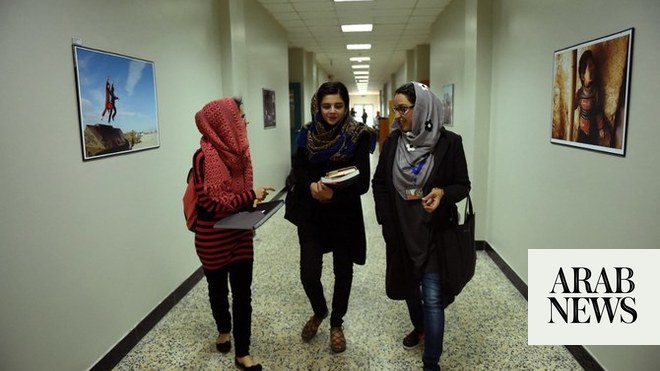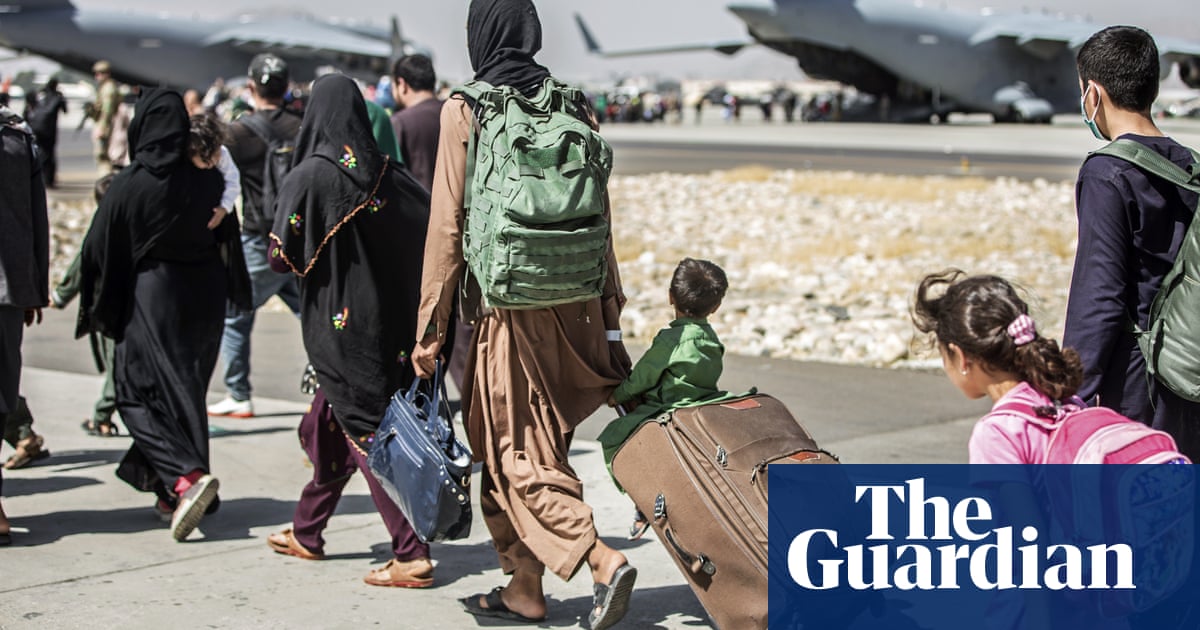
Under British Foreign Office rules, students could only be accompanied by “immediate family” such as spouses or children under the age of 18
LONDON: The families of Afghans studying in the UK are being threatened by the Taliban, a British politician has claimed.
Five students evacuated from Afghanistan when the group recently regained control the country, and who are due to start at the University of Sussex on Chevening scholarships, had not been allowed to bring their families with them to the UK, Green Party MP Caroline Lucas said.
Under British Foreign Office rules, students could only be accompanied by “immediate family” such as spouses or children under the age of 18, the Guardian reported.
The students told Lucas that they had received WhatsApp messages from the Taliban threatening the lives of their elderly dependents and dependent siblings still in Afghanistan.
Lucas said: “(The five students) are absolutely desperate about their families’ safety with their anguish heightened by the knowledge that their families are at risk precisely because of their decision to take up their Chevening placements – placements which mark them out as collaborators with the UK.”
She added that the fathers of two of the students had been murdered by the Taliban two years ago, and one claimed to have heard reports that the group had put pressure on a relative of school age.
The former Green Party leader said she had raised the issue with the Foreign Office, Home Office, and the Chevening secretariat but had received only “a deafening silence” in response.
She has accused the British government of failing to offer any clear assurances to people attempting to leave Afghanistan, after it pledged to take 5,000 refugees in the first 12 months and up to 20,000 over a five-year period. The scheme is yet to start.
In a letter to British Prime Minister Boris Johnson, Lucas said the government had told Parliament that individuals needed to wait for the scheme to open but had given no indication of when that would be.
And she pointed out that given the number of British nationals from Afghanistan living in her constituency who were seeking help, the scheme would be oversubscribed.
Her letter added: “My estimate based on my caseload is that there could be more than 33,000 family members alone that meet the scheme’s criteria, let alone those in the specified at-risk groups, so even 20,000 places over five years falls shamefully short.
“The government does not appear to know how many of the 5,000 places on the scheme will need to be allocated in the first instance to eligible Afghans already in the UK, such as 500 who were evacuated on Operation Pitting (UK military initiative to evacuate British nationals and eligible Afghans from Afghanistan following the Taliban takeover) flights but did not qualify for Arap (the Afghan relocations and assistance policy), or to those that have crossed the border and are in refugee camps.
“The government is also directing people toward a visa process that, by its own admission, is impossible to fulfil and, when it does get up and running, will incur all the usual charges and minimum income criteria,” she said.
Lucas also highlighted the difficulty for Afghans to provide the required biometrics for a visa, which are not available in Afghanistan, and demanded a waiver of visa requirements for family members of British nationals still stuck in the country.
The British Home Office said: “There will be many more people seeking to come to the UK under the scheme than there are places.” It added that it was taking a “considered approach, working with international partners and non-governmental organizations to identify those most eligible.”












